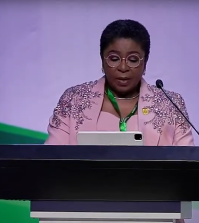Nigerian Civil Servants Told To Speed Up Audit Responses

Civil servants in Nigeria, who fail to answer existing audit queries within 30 days or respond to new requests for information by the auditor-general within 24 hours, will “pay a heavy price”, the president’s spokesman has announced.
President Muhammadu Buhari, who swept to power in the 28 March election, ordered the auditor-general of the Federation to make sure all outstanding audit queries are conclusively resolved within 30 days, and all new queries within 24 hours, in a bid to fight corruption among officials, according to local media reports.
He is said to have been unhappy when he heard that audit queries remained unanswered for long periods, sometimes running into years, under previous administrations.
The president’s spokesman Garba Shehu said in a statement yesterday: “The era of impunity is gone.
“The president is taking the war on corruption to the civil service.
“He is not happy that standard operating procedures and financial regulations are no longer being observed as they should.
“President Buhari will ensure that public officials and civil servants in the service of the federal government pay a heavy price from now on for violating financial regulations or disregarding audit queries.
“On his watch, President Buhari wants to see firm action against those who violate extant financial regulations, not the prevarication and shenanigans that went on in the past in the form of endless probes and public inquiries.”
A former military ruler, Buhari achieved a historic victory in the March election, becoming the first opposition candidate to defeat an incumbent.
He ruled Nigeria from January 1984 until August 1985, taking charge after a military coup in December 1983.
It is a period remembered for a strict campaign against indiscipline and corruption, and for its human rights abuses.
During his 20-month long rule, about 500 politicians, officials and businessmen were jailed as part of a campaign against waste and corruption.
Some saw this as the heavy-handed repression of military rule, but others remember it as a praiseworthy attempt to fight the endemic graft that prevented Nigeria’s development.





















